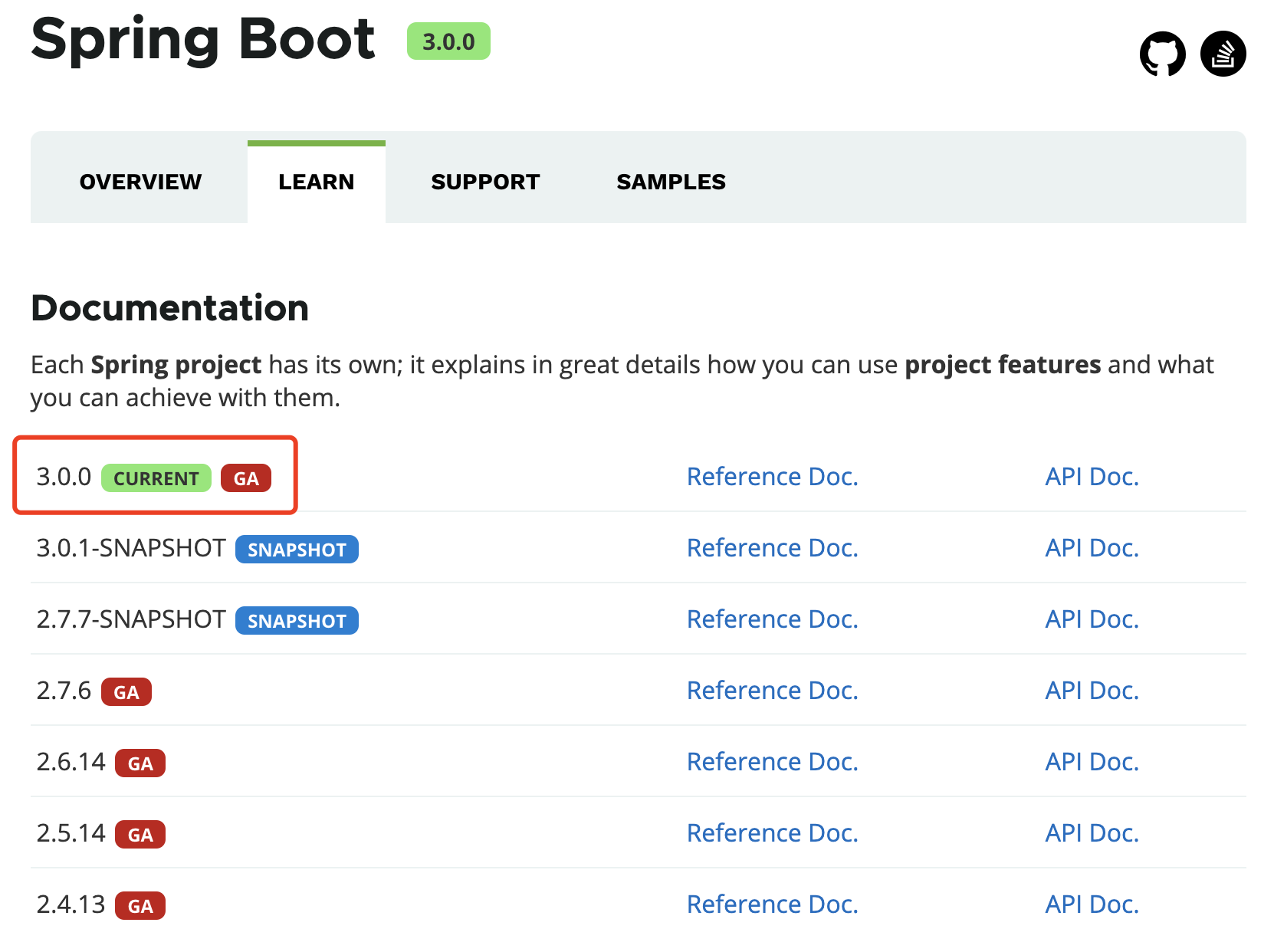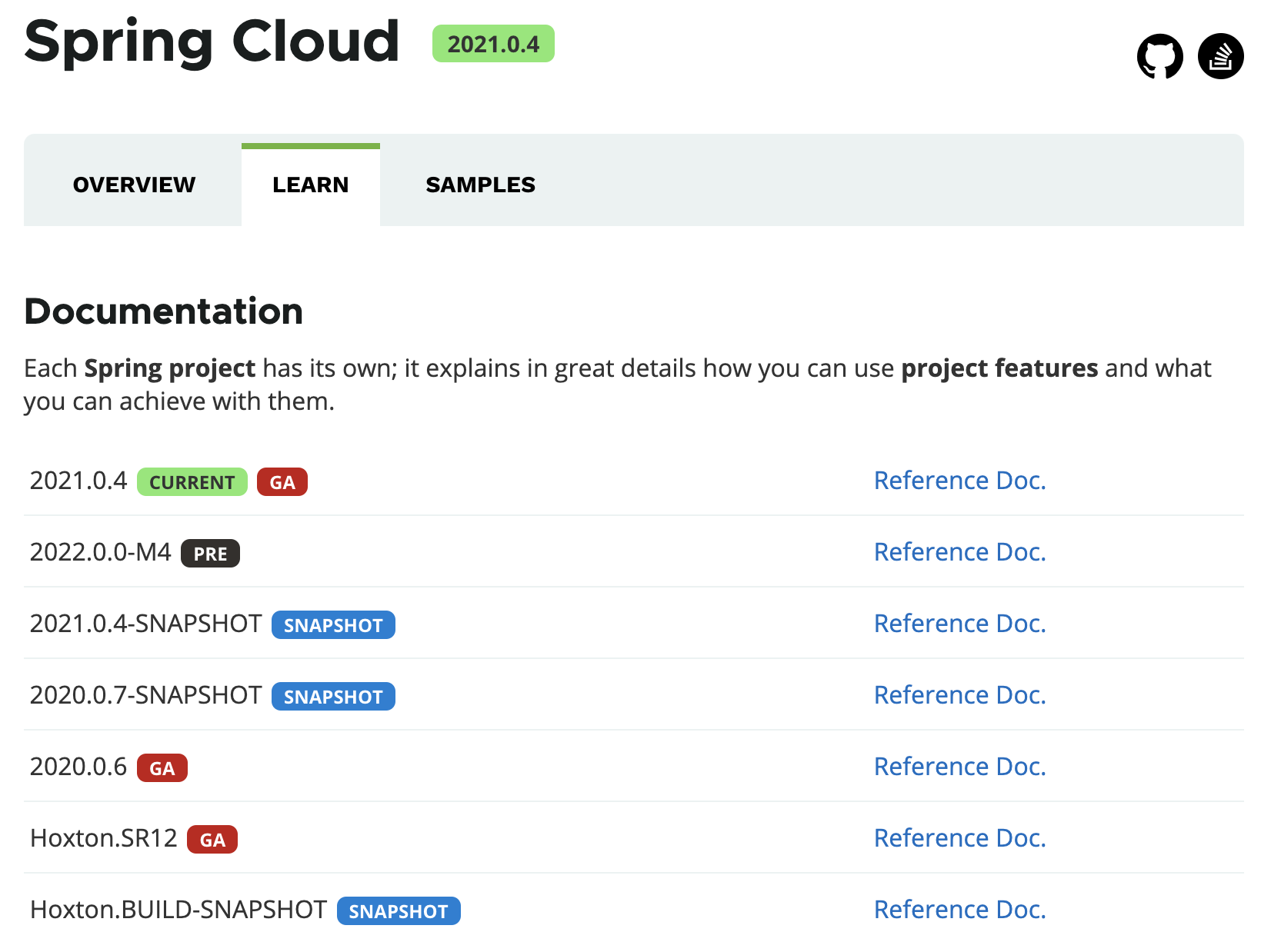初学 Spring Boot 的时候,按照官方文档,都是建立了一个项目之后,然后执行 mvn spring-boot:run 就能把这个项目运行起来。
我就很好奇这个指令到底做了什么,以及为什么项目里包含了 main 方法的那个class,要加一个 @SpringBootApplication 的注解呢?
为什么加了这个注解 @SpringBootApplication 之后,mvn spring-boot:run 指令就能找到这个class并执行它的main方法呢?
首先我注意到,用maven新建的spring boot项目,pom.xml 里面有这么一条配置:
<build>
<plugins>
<plugin>
<groupId>org.springframework.boot</groupId>
<artifactId>spring-boot-maven-plugin</artifactId>
</plugin>
</plugins>
</build>
看来mvn spring-boot:run 指令应该就是这个插件提供的。
由于不懂maven插件的开发机制,看不太懂,于是去找了下 maven 的插件开发文档:
http://maven.apache.org/guides/plugin/guide-java-plugin-development.html
根据官方的文档,一个 maven 插件会有很多个目标,每个目标就是一个 Mojo 类,比如 mvn spring-boot:run 这个指令,spring-boot这部分是一个maven插件,run这部分是一个maven的目标,或者指令。
根据maven插件的开发文档,定位到 spring-boot-maven-plugin 项目里的RunMojo.java,就是mvn spring-boot:run 这个指令所运行的java代码。
关键方法有两个,一个是 runWithForkedJvm,一个是runWithMavenJvm,如果pom.xml是如上述配置,则运行的是 runWithForkedJvm,如果pom.xml里的配置如下,则运行runWithMavenJvm:
<build>
<plugins>
<plugin>
<groupId>org.springframework.boot</groupId>
<artifactId>spring-boot-maven-plugin</artifactId>
<configuration>
<fork>false</fork>
</configuration>
</plugin>
</plugins>
</build>
runWithForkedJvm 与 runWithMavenJvm 的区别,在于前者是起一个进程来运行当前项目,后者是起一个线程来运行当前项目。
我首先了解的是 runWithForkedJvm:
private int forkJvm(File workingDirectory, List<String\\> args, Map<String, String\\> environmentVariables)
throws MojoExecutionException {
try {
RunProcess runProcess = new RunProcess(workingDirectory, new JavaExecutable().toString());
Runtime.getRuntime().addShutdownHook(new Thread(new RunProcessKiller(runProcess)));
return runProcess.run(true, args, environmentVariables);
}
catch (Exception ex) {
throw new MojoExecutionException("Could not exec java", ex);
}
}
根据这段代码,RunProcess是由spring-boot-loader-tools 这个项目提供的,需要提供的workingDirectory 就是项目编译后的 *.class 文件所在的目录,environmentVariables 就是解析到的环境变量,args里,对于spring-boot的那些sample项目,主要是main方法所在的类名,以及引用的相关类库的路径。
workingDirectory 可以由maven的 ${project} 变量快速获得,因此这里的关键就是main方法所在的类是怎么找到的,以及引用的相关类库的路径是如何获得的。
找main方法所在的类的实现是在 AbstractRunMojo.java 里面:
mainClass = MainClassFinder.findSingleMainClass(this.classesDirectory, SPRING\_BOOT\_APPLICATION\_CLASS\_NAME);
MainClassFinder.java 是由spring-boot-loader-tools提供的,找到main方法所在的类主要是如下的代码:
static <T> T doWithMainClasses(File rootFolder, MainClassCallback<T> callback) throws IOException {
if (!rootFolder.exists()) {
return null; // nothing to do
}
if (!rootFolder.isDirectory()) {
throw new IllegalArgumentException("Invalid root folder '" + rootFolder + "'");
}
String prefix = rootFolder.getAbsolutePath() + "/";
Deque<File> stack = new ArrayDeque<>();
stack.push(rootFolder);
while (!stack.isEmpty()) {
File file = stack.pop();
if (file.isFile()) {
try (InputStream inputStream = new FileInputStream(file)) {
ClassDescriptor classDescriptor = createClassDescriptor(inputStream);
if (classDescriptor != null && classDescriptor.isMainMethodFound()) {
String className = convertToClassName(file.getAbsolutePath(), prefix);
T result = callback.doWith(new MainClass(className, classDescriptor.getAnnotationNames()));
if (result != null) {
return result;
}
}
}
}
if (file.isDirectory()) {
pushAllSorted(stack, file.listFiles(PACKAGE_FOLDER_FILTER));
pushAllSorted(stack, file.listFiles(CLASS_FILE_FILTER));
}
}
return null;
}
这里的核心就是利用spring的asm框架,读取class文件的字节码并分析,找到含有main方法的类,然后再判断这个类有没有使用了 @SpringBootApplication 注解,有的话,就属于要执行的代码文件了。
如果项目里面有多个含有main方法且被 @SpringBootApplication 注解的类的话,我看代码应该是直接选择找到的第一个开运行。
读取依赖的库路径,在spring-boot-maven-plugin里有大量的代码来实现,还是利用maven本身的特性实现的。
根据了解到的这些信息,我新建了一个普通的java项目bootexp,用一段简单的代码来运行起一个spring boot项目:
package com.shahuwang.bootexp;
import java.io.File;
import java.io.IOException;
import java.util.ArrayList;
import java.util.HashMap;
import java.util.List;
import java.util.Map;
import org.springframework.boot.loader.tools.JavaExecutable;
import org.springframework.boot.loader.tools.MainClassFinder;
import org.springframework.boot.loader.tools.RunProcess;
public class Runner
{
public static void main( String[] args ) throws IOException {
String SPRING_BOOT_APPLICATION_CLASS_NAME = "org.springframework.boot.autoconfigure.SpringBootApplication";
File classesDirectory = new File("C:\\share\\bootsample\\target\\classes");
String mainClass = MainClassFinder.findSingleMainClass(classesDirectory, SPRING_BOOT_APPLICATION_CLASS_NAME);
RunProcess runProcess = new RunProcess(classesDirectory, new JavaExecutable().toString());
Runtime.getRuntime().addShutdownHook(new Thread(new RunProcessKiller(runProcess)));
List<String> params = new ArrayList<>();
params.add("-cp");
params.add("相关库路径")
params.add(mainClass);
Map<String, String> environmentVariables = new HashMap<>();
runProcess.run(true, params, environmentVariables);
}
private static final class RunProcessKiller implements Runnable {
private final RunProcess runProcess;
private RunProcessKiller(RunProcess runProcess) {
this.runProcess = runProcess;
}
@Override
public void run() {
this.runProcess.kill();
}
}
}
相关库的路径获取,都是spring-boot-maven-plugin这个项目里面的私有方法,所以我这里直接在 bootsample 这个spring boot项目下执行 mvn spring-boot:run -X, 输出classpath,把classpath复制过来即可。执行bootexp这个项目,即可运行起 bootsample 这个spring boot项目了。
所以为什么spring boot的项目,main方法所在的类都要加上注解 @SpringBootApplication 这个疑问也得到了解决。
综上,mvn spring-boot:run 这个指令为什么能运行起一个spring boot项目就没有那么神秘了,这里主要的难点就两个,一个是maven插件的开发,获得项目的配置信息,执行起指令;一个是类加载机制,以及注解分析。
关注微信公众号:Java技术栈,在后台回复:boot,可以获取我整理的 N 篇 Spring Boot 教程,都是干货。
来源:https://segmentfault.com/a/1190000021687878
声明:本站所有文章,如无特殊说明或标注,均为本站原创发布。任何个人或组织,在未征得本站同意时,禁止复制、盗用、采集、发布本站内容到任何网站、书籍等各类媒体平台。如若本站内容侵犯了原著者的合法权益,可联系我们进行处理。




